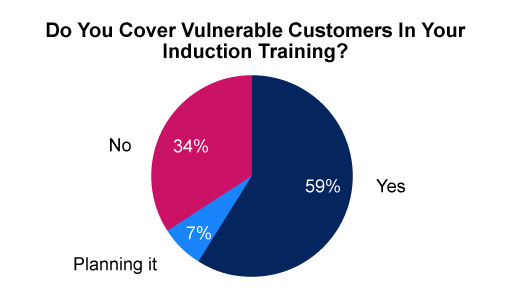Josh O’Farrell at Spearline shares ideas on dealing with frustrated customers.
Your call center agents could be facing over 100 frustrated callers a day, which is extremely testing.
Frustrated customers can create uncomfortable situations for your contact center agents, damaging their morale and the working environment. We often see demanding customers as a sign of a dysfunctional organization, but challenging customers offer us a great chance to find new, innovative solutions.
In every successful organization, you must have the correct training and strategy implemented for your agents. It is vital that you learn how to handle angry and disgruntled customers who may not have received the level of service they expected from the company you represent.
We all get frustrated from time to time. It’s human nature. For an agent to keep a cool head and ensure the customer receives the best experience (they are always right after all), check out these tips on dealing with frustrated customers the correct way.
Training Is Essential
You risk losing the company’s credibility and, more importantly, harming the consumer if the contact center is not well equipped to handle customers’ calls in any of these situations.
According to a webinar by Call Center Helper, it was surprising to learn that more than a third of contact centers (34%) do not include vulnerable customer training in their induction training.

You need to train your agents for every possible scenario. No two customers are the same, even if they have similar complaints. If you don’t provide relevant training, your employees will be unprepared, lack confidence, and feel isolated when making these challenging calls, negatively impacting their morale.
Team-building exercises like ice breakers, Q&A, acting out scenarios AS the customer, and even ping pong games, are all tried and tested within the contact center industry. The teamwork involved with each is a first step in creating a great working environment, reflecting on your customers.
Empathize Instead of Arguing
When it comes to defusing a situation, arguing or shouting over the customer is the worst tactic. You must empathize with your customers. Listen to their problem, show that you understand what they’re going through and that you’re the person they need. The customer will appreciate your attention to detail and the use of appropriate verbal cues.
Responding with even more anger and frustration will only exacerbate the problem, delaying any resolution. Alternatively, reassure the client that you are available to assist them and that you are their best immediate option for resolving the issue.
This simple statement has the effect of defusing a situation. The agent is meant to be the point of contact for the customer. They should be their ally, not the enemy. Your calm demeanor and lower tone will also rub off on them, assisting them in calming down. Here are some useful phrases your agent can use:
- “Your issue is a cause for concern. Let’s find out why this happened”
- “I can tell you are frustrated and my job is to make sure you are not frustrated anymore”
- “Is there anything else about the situation I need to know?”
- “Thank you for being patient while I look into this.”
Minimize On-Hold Times
Being put on hold for an extended period of time is one of the worst things that can happen on a phone call. When a customer calls in, their patience is already frayed, and being placed on hold for an extended period of time will only irritate them further.
If your customers are left on hold for long periods of time, no matter how nice your agents are, they will feel as if their issue is not being prioritized.
While it is impossible to completely eliminate waiting time, at least in the short term, businesses can use a variety of strategies to reduce on-hold time. Customers are happier when there are fewer wait times, and they are ultimately more comfortable and satisfied with the services you provide.
Creating routing strategies to connect the customer with a more knowledgeable agent and updating the knowledge base to give advisors all the information they need upfront will help minimize on-hold times and resolving the problem faster.
But there are also non-technological solutions for you to consider, such as listening to call recordings of your highest performing agents – according to low hold times and high CSat scores – and sharing best practices.
Ensure Call Quality Is Optimal

Josh O’Farrell
Something for management to be aware of for their business is the benefits excellent call quality can have for both their agents and customers. Similar to long on-hold times, the customer’s frustration will be amplified if the call quality is extremely poor.
They are trying to explain their situation and want to get it resolved quickly, but having to repeat it multiple times due to poor audio quality will only aggravate them more and drop the call.
By proactively monitoring your numbers, you will be alerted and given the time to fix any issues your agents could be facing. Customers will trust a business that they know has good audio quality.
Not only will it help speed up the process of resolving the issue but becomes less hassle for your agents, while also being extremely cost-effective.
Nobody said dealing with customers was going to be easy, but there are ways to ensure both sides have a smoother, hassle-free experience. Be sure to implement these tried, tested, and successful steps to provide your customers with the best possible experience when calling your agents.
To find out about Spearline, visit: www.spearline.com
Author: Guest Author
Published On: 9th Apr 2021 - Last modified: 25th Jan 2023
Read more about - Guest Blogs, Spearline



































